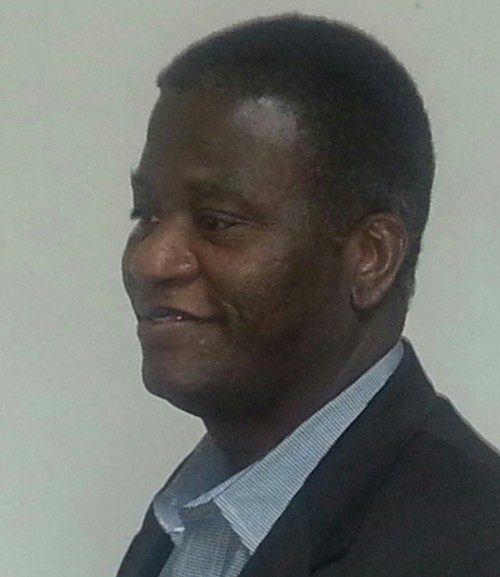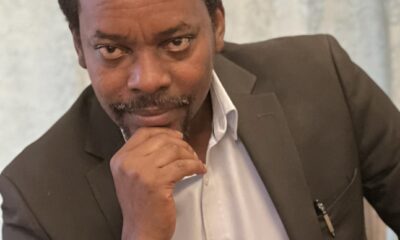Global Issues
Mixed Metaphors: Niger, El-Rufai, Akpabio -By Sonala Olumhense
If the 10th Assembly is making a mockery of what the legislative arm should be, what about the ninth? Where are the records and reports of the previous nine…by Assembly, committee, date or subject? Where are the laws enacted under Obasanjo, for instance, or Muhammadu Buhari?

Coup in Niger Republic: Despite considerable nationwide opposition to Nigeria participating in military action, President Bola Tinubu seems determined to go ahead.
Among them, Jama’atu Nasril Islam and the Christian Association of Nigeria advised against it. The Senate refused his request, urging him to seek a political resolution.
Although the coup leaders in Niamey were reported to have rebuffed a Tinubu delegation following his seven-day ultimatum, they welcomed Lamido Sanusi, the former Emir of Kano, thereby indicating that the diplomatic door was not closed.
As last week ended, Tinubu was swallowing his hollow threat of military invasion of Niger, telling Thursday’s meeting of ECOWAS Heads of State and Government in Abuja, “In reaffirming our relentless commitment to democracy, human rights and the well-being of the people of Niger, it is crucial that we prioritise diplomatic negotiations and dialogue as the bedrock of our approach.”
But he ended up with a major decision to make: between the wishes of his country and those of ECOWAS leaders who completed the meeting by directing the immediate activation of the ECOWAS standby force “with all its elements.”
Where, in all of this, was former Nigeria leader, Muhammadu Buhari, who went out of his way throughout his tenure to service his relationship with that country and even vowed to go and live there should Nigerians “bother” him in Daura about his disastrous leadership of the country:
Buhari proved to be an extremely narrow-minded leader, among other things. Is he too selfish to intervene and help prevent this conflict?
Asari Dokubo’s army: This one is also about not being in a hurry to put up your dukes before you have learnt boxing.
In 2004, Dokubo, as leader of the Niger Delta People’s Volunteer Force, disclosed that he had about 3,000 AK-47 rifles. With Nigerians deeply concerned about the implications of those weapons falling into the wrong hands, Peter Odili, the then Rivers State governor, offered to buy them off Dokubo, at a price of N250,000 ($1,600) each. Even President Olusegun Obasanjo agreed to meet with the NDPVF chief.
Dokubo obviously had bigger plans, or perhaps a bigger cache of weapons. He has now established a relationship with Mr Tinubu, and recently admitted that he has a licensed “private military company” in Nigeria.
In his words, “…We are fighting side by side with the Nigerian military in many places. Like Niger, Plateau, Abia, Imo and in parts of Rivers State. We were in Anambra too. We are doing a good job and we are being commended by the host communities.”
His claim of cooperation has been swiftly denied by the army. But who is lying? Who registers mercenaries in Nigeria, the Corporate Affairs Commission? How are they equipped and monitored? What does the public (not) know?
Former Kaduna State governor, Nasir El-Rufai, must be a deeply embarrassed man. It was on that lofty perch last October that the APC presidential candidate begged him to drop his plans to go abroad for a PhD. In that infamous citation, Tinubu told him, “Your vision, creativity and resiliency in turning a rotten situation into a bad one is necessary at this critical time.”
It was the historic cue that the governor missed. Ten years earlier, well before his governorship, he had affirmed he would never again serve as a minister. “I will never do this work again, because I don’t repeat assignments,” he told Weekly Trust. “I have never repeated a class neither have I failed my exams. I move forward and let someone else do it.”
Sadly, offered the chance this month to “turn a rotten situation into a bad one,” he embraced it, only to be halted by an avalanche of petitions referencing his character.
To think that it all took place in Abuja, the city that built his legend, with the Jagaban apparently agreeing that he is far more trouble than he is worth.
But El-Rufai should be comforted that he will be studying in the Netherlands (I had suggested Afghanistan), a country where there is only five per cent Muslim population. He can go after that 95 per cent and demonstrate to it that there is no hypocrisy in persecuting another religion when political fortune favours you.
Finally, the National Assembly.
Fresh from one of the saddest moments in its history two weeks ago in which the Senate laughed at poor Nigerians being “allowed to breathe,” the upper chamber stressed its true poverty when its president, Godswill Akpabio, last week made a delightful announcement. The Clerk of the National Assembly had paid into the accounts of members a monetary gift, which he called a “token”, to enable them to enjoy their recess.
That the sum turned out to be N2m each for a legislative body which pays itself above and below the table is not the issue, it is how casual the distribution of illicit funds has become. In this case, it simply took the clerk and an excuse, the administration having become a part of the menace.
But this is in a legislature where there is historically limited work, history or achievement. Even the website of NASS would embarrass a secondary school student web designer.
Come with me to Inter-Parliamentary Union and compare Nigeria’s with the websites of the legislatures of Argentina, Germany, Malaysia or South Africa. Or ignore my examples and choose any of the other 175 legislatures. Observe how professional, committed and meaningful their websites are: with their constitutions, legislative history, records, statistics, photos and videos.
In the matter of gender, for instance, 26.6 per cent of legislators worldwide are women; in South Africa, that figure is 45.61 per cent, but in Nigeria, only 3.91 per cent. (And while we want to teach Niger a lesson in “democracy,” 30.72 per cent of their legislators were women).
NASS is ugly and awful, and for a national body, the little that is available on that website is atrociously written. For instance, “The Parliament in Nigeria right from inception had robust and historic developments which dates (sic) back to the Colonial and Post-Colonial Independence.”
Consider this: “The number of Constituencies per State varies since population strength is the criterial (sic) used to determine the number of each State’s Federal Constituencies.”
For the vision of the Assembly, they chose a civil service writer who did not know. He (or she) penned, “To be a professional, proactive, efficient and effective bureaucracy of the legislature.” Really?
And its mission? “To build a capable, disciplined and motivated workforce that will leverage on well developed human resources and modern technology to render excellent support services to [itself].”
If the 10th Assembly is making a mockery of what the legislative arm should be, what about the ninth? Where are the records and reports of the previous nine…by Assembly, committee, date or subject? Where are the laws enacted under Obasanjo, for instance, or Muhammadu Buhari?
The point is this: the clerk did not arbitrarily send holiday gifts to the senators. Corruption, indolence and charlatanism are baked into its membership and its administration, and few breathing its air appear to care for right over wrong.
Where did the clerk get the money? Is anyone returning the “token”?
Do NASS correspondents ask questions?

















